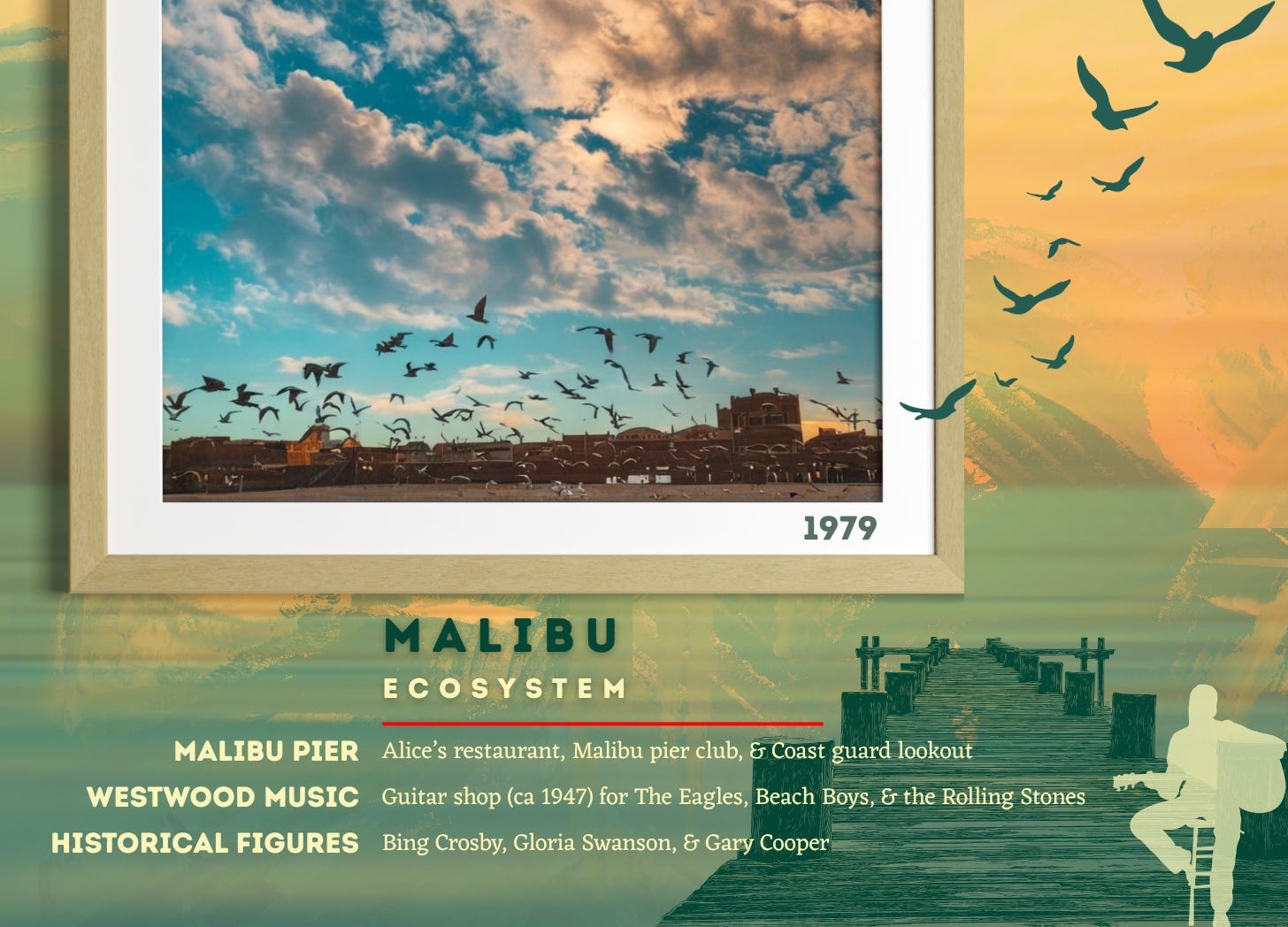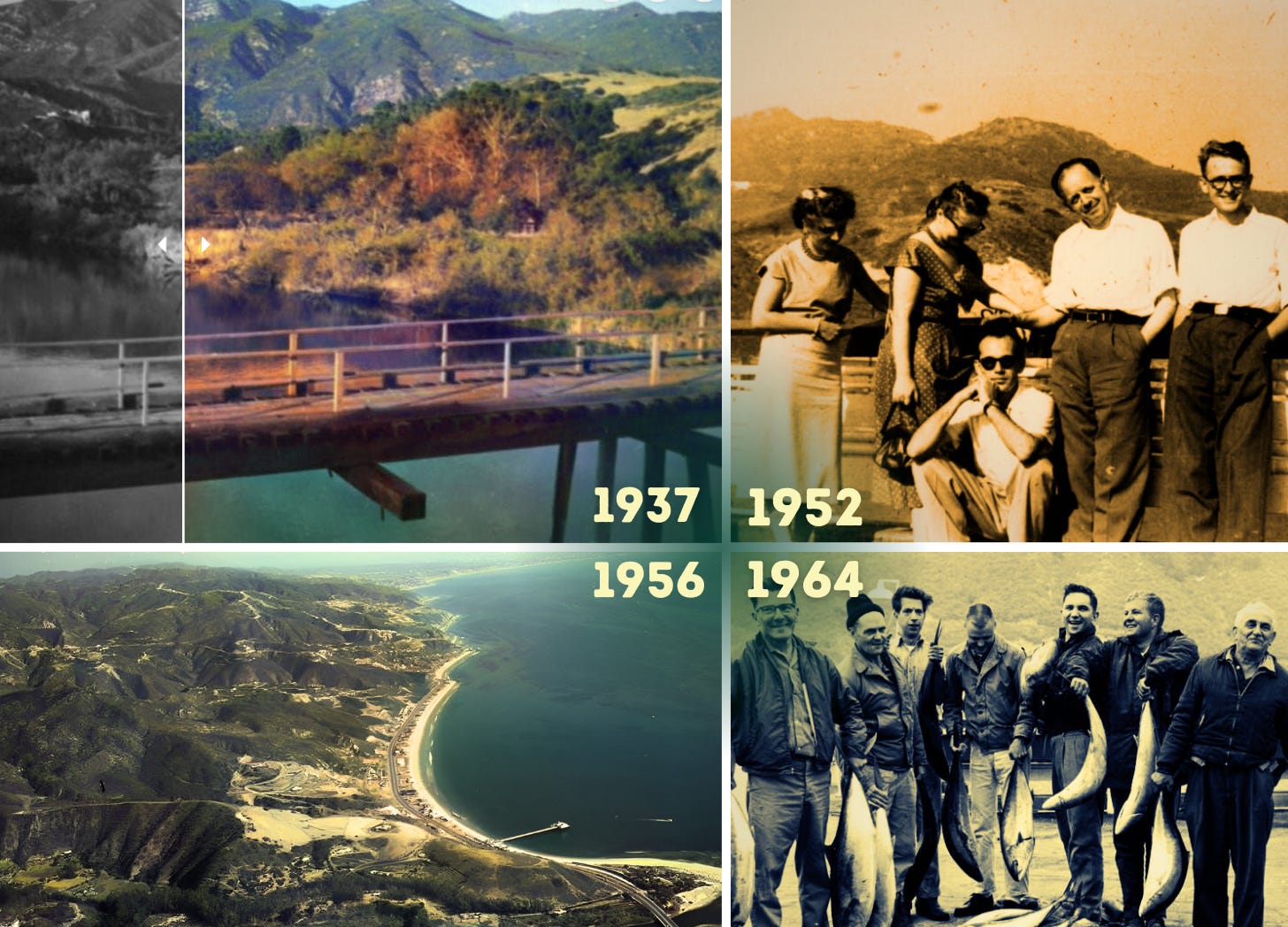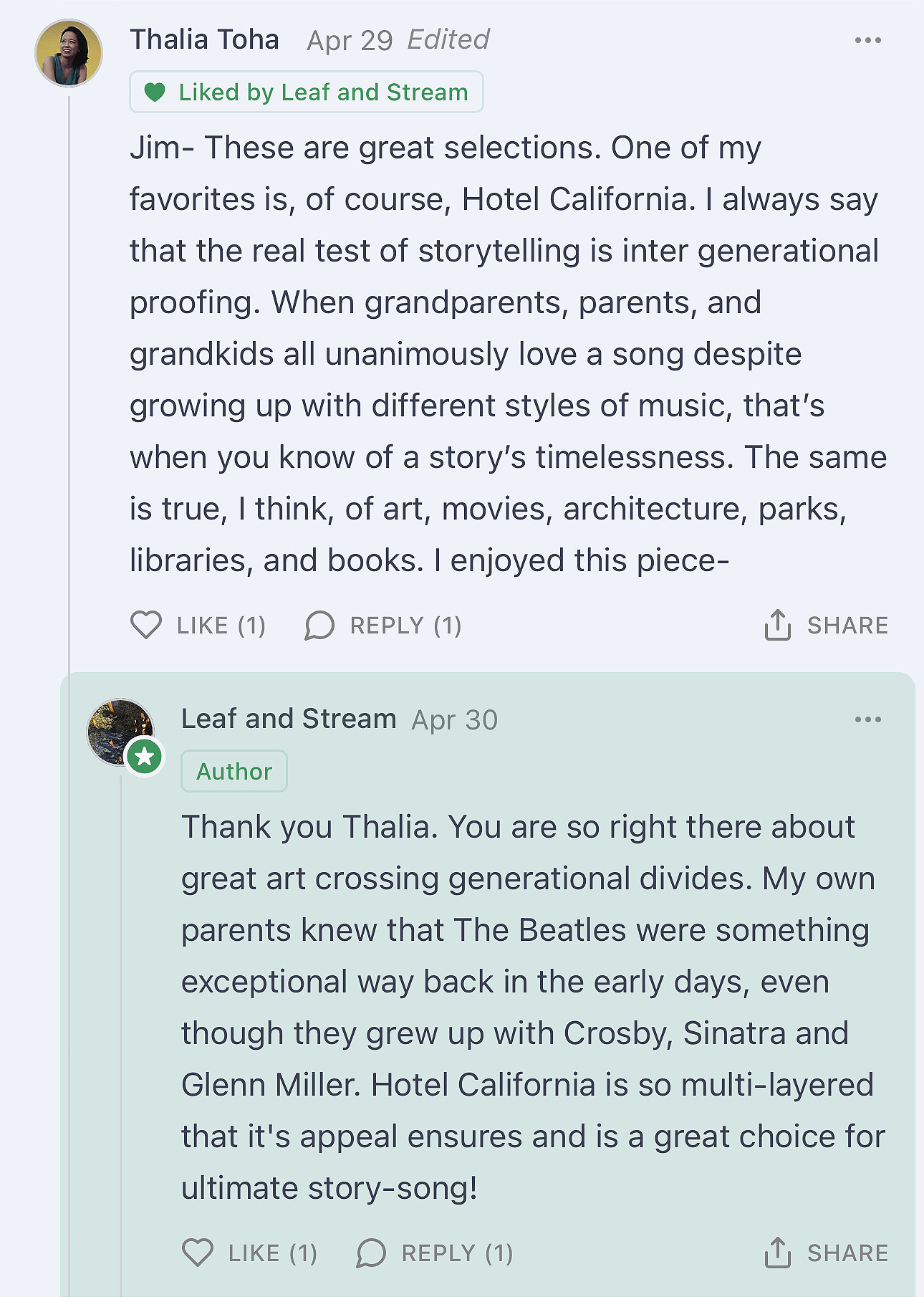Hotel California, where it all happens
One of the greatest songs was written around these places and plates
What if coastlines did the writing for you?
No, seriously. What if all we had to do, was just let the earth do the coloring?
Hi, everyone-
To me: the Eagles’ Hotel California, even as a child walking the wet muds of the tropics, rang true. As a song—that was written. Not just copied. Not just dictated. But … written.
Wrestled. Wept. And woven.
The generational extent of Hotel California’s reach—is breathlessly unbreakable.
When my parents hear this song, they’d sink into their love seat. Like children under a midsummer shade.
For me, it makes me hear something of an anvil-gong rung by monasteries I’ve never visited. And for some reason: it reminded me … of sacrifice.
My kids can’t explain why they’d put down their devices when this song comes on. But it’s just about the only one they’d actually voluntarily put on. When we’re on a merciless multi-hour road trip. The Beatles won’t do. The Rolling Stones won’t. But this … This they’d always cheer for.
How could a song—about a place I’ve never lived in, by a band I know little of, from a time not contemporary to mine—made my eyes water like I was seeing water for the first time?
And why does that Reggae drum-beat work so well with the Sierreño-style 12-string guitar, anyway? Even for people who know nothing about either genres.
Reasons have been put forth. Good ones. Like the Eagles’ precise song-writing skills. Ideal timing. Momentum of the masses. American dream. Californian dream. Luck. Tight-knit band. And so on.
All great reasons. I’m sure you could give me some yourself.
I was chatting with one of our paying subscribers, Jim of Leaf and Stream, who shared some great insights on songs as vessels for stories.
Since I’m neither a musician, a guitarist, or even a Californian, I always search for answers in my chosen discipline: architectural geography. Naturally, my questions were along the lines of:
Can Hotel California even be written—without its surrounding?
I’m talking the Malibu house where Don Henley wrote the lyrics,
The then 71-year old Malibu Pier that the Eagles must’ve walked,
The then 29-year old Westwood Music guitar shop, where Rolling Stones and Beach Boys were also customers,
And Alice’s Restaurant, then open for 4 years already, where the band would’ve eaten.

The strange thing is: the Eagles knew little about California at the time of writing.
All of us kind of drove into L.A. at night. Nobody was from California, and if you drive into L.A. at night … you can just see this glow on the horizon of lights, and the images that start running through your head of Hollywood and all the dreams that you have, and so it was kind of about that.
-Don Felder on Sirius Satellite Radio, 2008
I mean, How!?
Music historians and scholars alike have even puzzled over how—though the real Beverly Hills Hotel became the album cover for Hotel California—there was no particular real hotel that the song was actually written about.
It was rather: An idea of a place.
So now my question is: What is this ‘place’?
And why does a song about this so-called imaginary place, makes one tear, think, and smile—all at the same time?
If we take a listen at the Eagles’ official version of Hotel California, my take, is that:
The song lets earth scream colors.
Here’s what I mean.
Decades before Malibu coastlines hosted The Eagles (and definitely years before it boasts eye watering mansions and everything plastic-pink), it used to look … like this. And it was the home of these people.

When I was younger, I always thought black-and-white pictures were depressing. It reminded me of that dingy corner my grandfather used to have. The one with books too high-brow for mini-Thalia to read. And the one that had a bunch of pictures of his Sumatra guerilla war comrades. I still regret to say to this day:
As a child, I avoided this corner like a plague. It was dark. Black and white. Sepia, maybe. But for a 5-year old: basically colorless. It’s a child’s worst nightmare. She couldn’t comprehend it. And it makes her scream for help. Long after she wakes. I’d imagine drowning might feel a bit like this. Hazy. Full of weight.
Not at all, like the warming colors of Malibu Pier in the 70s and 80s.
California is like a Christmas art-box
You know, the one where you have 24 color pencils, 36 crayons, and 40 water color paints. An all-in-one box that you can click-clack close tightly. And show off at school. Like an all important briefcase. That carries the nuclear code. And cracks it.
When one first arrives in California, it’s all-in-one fortitude is pretty clear:
Everyone’s strength is somehow juiced up exponentially.
6 year-olds have abs like they’re 26.
60-year-olds are sun-kissed like they’re sun-god Apollo.
But then again:
California is also like the Malibu Pier
Having all the colors of land and sea at its command, it demands the best of both worlds. The breathtaking and the breathless. Oxygen and lack thereof. Sand and surf. You can see this in their food and restaurants, which command a high price.

Searching through the archives on Alice’s Restaurant reminded me of a time when I first ate in coastal California. At that point, I’ve heard of clam chowders before. Clams in a savory creamy soup. Usually I’m a clear-broth person. And I only save the creamy consistencies for wintery nights.
Still, I can see why mollusk varieties have gained traction here. Because harvest starts at the coasts and along the piers. Imagine this in a warm, thick bread.
But on the sands of California—looking out on waters that had hosted Dr. Martin Luther King, Jr., Levi Strauss, and Oscar Wilde—I stared at a softball-size ball of bread in my palms. The bread top was cut like a whole coconut would when you want to drink it in with a straw. Except this bread had clam chowder in it.
Why? Never seen soup served in bread before. But I suppose that’s what happens when the first instinct is to take your food to the coastline. It must be portable somehow.
If a camel can store gallons of water in its hump, no reason why a hearty bread couldn’t. So the bread preserves the soup. It soaks in the savor. It marinades like earth fertilizes.
The food could be close to perfect alright. But California is certainly not a perfect place. Either way:
Expeditionists call the California desert: home
Last week, I talked about desert food and dwellings. I’ve lived and did field work in the desert before.
Sweat is nonexistent. It’s so dry-hot, that whatever the pores pour, it evaporates instantly.
Walking for more than an hour in the sun results in a throbbing headache.
And nostrils would activate its code-red. And just bleed on the fly.
It goes without saying: Death comes for those who can’t call the desert, Home.
So could we really blame anyone determined to make the desert home?
I got a better idea of what this meant, after spending 487-minutes meticulously curating Hotel California’s verses. On illustrative indices. No AI. Thankfully, all artisan intelligence. By yours truly.
See if you could listen to the song again, while following along the below indices I’ve curated.
You might find yourself—in an unknown place.
I realize now, after hours working on these, why the song makes longing—something to long for. It’s because:
It grabs that idea of a place,
And places that idea down on earth,
Into something we know, by color:
That Hotel we walked into.
Meeting strangers, who become friends, who become lovers, who become foes. Voices that either chills or warms turquoise waters—into searing sunset pink. Searching for home among sea-captains. Among those always homesick and, at the same time, home-bound. Becoming more and more aware, of the personal mission—and sacrifice, of:
Wandering while wondering.
Until:
Hotel California is that home in the desert.
-Thalia
Now if someone could please tell me why exactly that guitar solo is one of history’s best, I’d love to hear.
PS: If you enjoyed what you’re reading, consider hitting the LIKE button. It’ll help more people find this article.
I appreciate you.
-Thalia















Thank you for taking all that time to delve into this timeless song and share your insightful thoughts with us. Your illustrations are outstandingly beautiful. I was 27 when the song came out and, of course, blown away by the sound. My imagination painted a picture of driving through the night and over the border to Baja California, Mexico. My interpretation of "You can check out anytime you like. But you can never leave," meant "checking out" on heroine. I only smoked weed; however, the prevalence of drugs was everywhere and definitely influenced my thinking. Right now, Hotel California is playing in my head, and I need to have a listen once more, this time from your perspective.
The summer of 1979, Gainesville Florida. My first rock concert, with the Eagles. 46 years ago and I still remember if well. The whole stadium was enraptured when they played Hotel California. That's my first memory whenever I hear the song. Two lines always stuck out for me. "You can check out any time you want, but you can never leave." I always took that to mean that the culture of that place would always draw you back. Decadence has a way of pulling you back towards it, even when you want to leave it behind. And "we haven't had that wine since 1969. Having been a wee lad in '69 I always took that line to be a reference to Woodstock and the summer of love and how that had been lost in the '70's. And of course the music itself. those guitar riffs are iconic. Like so many of that era by so many great musicians. Thanks for the trip down memory lane Thalia.